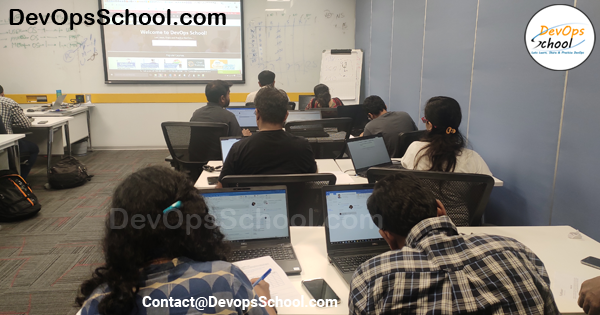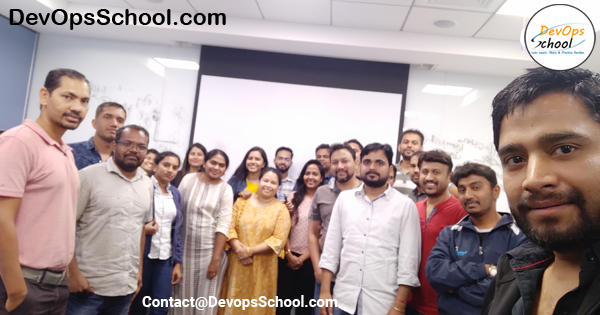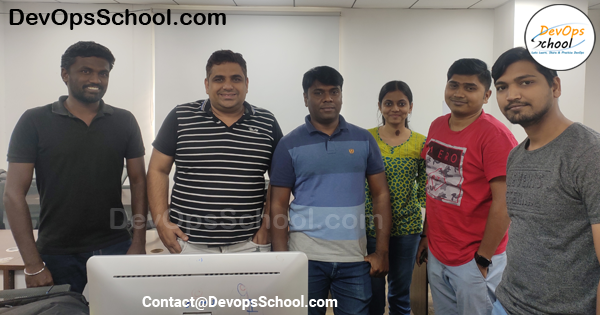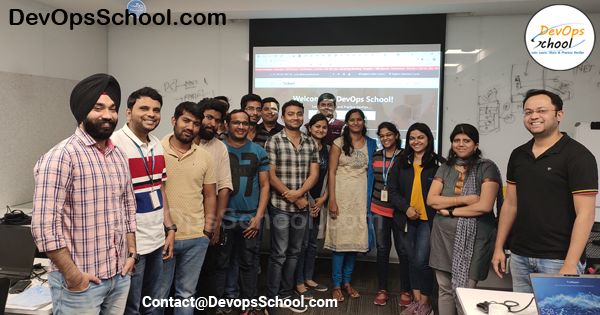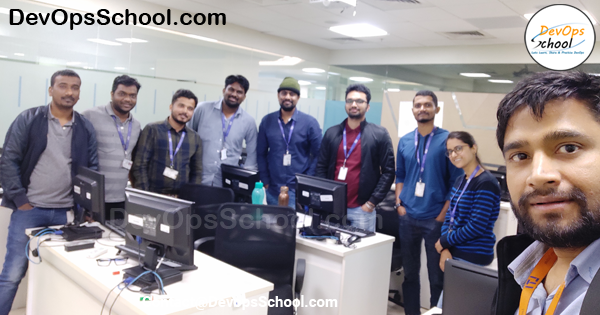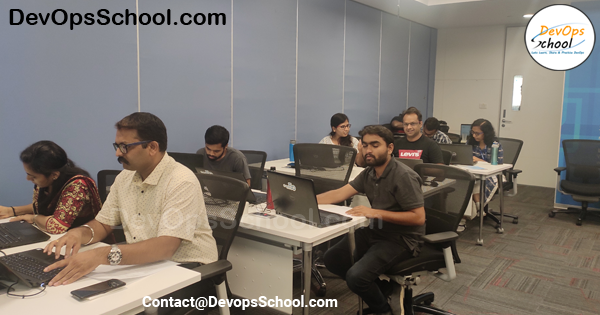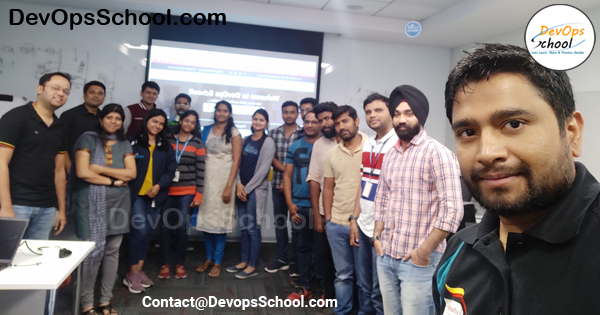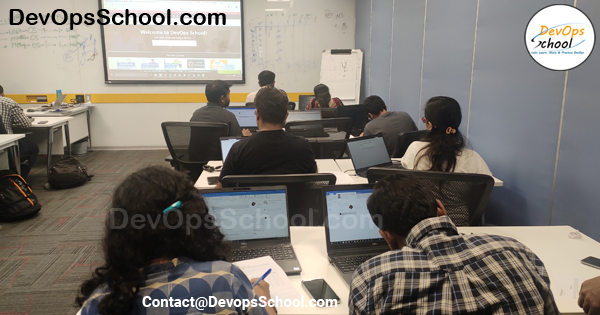1. About This Course and Certification
The Datadog Training and Certification program by AI Universe, in collaboration with DevOpsSchool.com, is a thorough training course designed to help professionals gain deep insights into Datadog, a leading monitoring and security platform for cloud applications. This course covers the essentials of infrastructure monitoring, application performance management (APM), log management, and security monitoring using Datadog. Participants will be prepared to take the official Datadog certification exam, ensuring they are fully qualified to monitor, analyze, and optimize their systems in real-world scenarios.
2. What is Datadog?
Datadog is a unified monitoring and security platform for cloud-scale applications. It brings together infrastructure monitoring, application performance monitoring (APM), log management, and security monitoring into a single pane of glass, allowing IT operations, security engineers, and development teams to get real-time insights into their applications and infrastructure. Datadog’s flexible dashboard, alerting, and integration capabilities make it an essential tool for modern cloud environments, helping teams gain full visibility across distributed systems, troubleshoot issues, and optimize system performance.
3. Why Datadog is Important?
Datadog is important because it provides:
- Comprehensive Monitoring: Datadog supports full-stack visibility across servers, containers, databases, and cloud services, allowing teams to monitor applications at every level.
- Real-Time Insights: Datadog offers real-time monitoring of infrastructure, logs, and applications, helping teams respond quickly to issues and maintain optimal performance.
- AI-Powered Alerts: Its AI-driven alerting and anomaly detection help identify issues before they affect end-users.
- Scalability: Whether your infrastructure is on-premises, in the cloud, or hybrid, Datadog scales easily with your needs.
- Integrations: With 450+ integrations, including AWS, Azure, Kubernetes, and Docker, Datadog seamlessly fits into existing DevOps and cloud environments.
- Security Monitoring: In addition to performance monitoring, Datadog offers real-time threat detection, helping teams manage security threats efficiently.
Learning Datadog gives IT and DevOps professionals the ability to optimize system performance, troubleshoot issues quickly, and improve the overall reliability and security of cloud-native applications.
4. Course Features
- Expert-Led Training: Learn from Rajesh Kumar, a seasoned DevOps and monitoring expert with years of experience.
- Hands-On Learning: The course includes real-world labs, scenarios, and exercises to provide hands-on experience with Datadog’s core features.
- Certification Prep: The training is tailored to help participants prepare for Datadog certification exams, ensuring they gain the knowledge and skills required to pass the certification.
- Lifetime Access to Materials: Participants will receive lifetime access to course materials, video recordings, and supplementary resources.
- Flexible Learning Options: Both online and offline training modes are available, making it accessible to participants from different locations and schedules.
5. Training Objectives
By the end of this training program, participants will:
- Gain in-depth knowledge of Datadog’s core functionalities, including infrastructure monitoring, APM, log management, and security.
- Learn how to set up, configure, and manage Datadog agents for comprehensive monitoring.
- Understand how to create custom dashboards and configure alerts to monitor application performance in real-time.
- Be able to integrate Datadog with other DevOps tools like Jenkins, Kubernetes, Docker, and CI/CD pipelines.
- Learn incident management and troubleshooting techniques to quickly resolve performance and security issues.
- Be fully prepared to take and pass the Datadog certification exam.
6. Target Audience
This course is ideal for:
- IT Operations Professionals: Those responsible for maintaining infrastructure and application uptime.
- DevOps Engineers: Professionals aiming to integrate monitoring and logging solutions into their CI/CD pipelines.
- Application Developers: Developers who want to monitor the performance of their applications and troubleshoot issues.
- Cloud Engineers: Those managing applications deployed in cloud or hybrid environments.
- Security Engineers: Individuals interested in learning about real-time threat detection and how Datadog can monitor security incidents.
No prior experience with Datadog is required, though basic knowledge of system administration and cloud infrastructure is recommended.
7. Training Methodology
The training program combines:
- Instructor-Led Lectures: Detailed presentations covering Datadog’s core functionalities, use cases, and best practices.
- Hands-On Labs: Each session includes practical exercises where participants will configure and manage Datadog agents, set up dashboards, and monitor applications.
- Workshops and Scenarios: Scenario-based learning to solve real-world challenges with Datadog’s monitoring, APM, and log management features.
- Interactive Q&A Sessions: Each session includes time for Q&A to ensure participants understand the material and can ask specific questions related to their use cases.
8. Training Materials
Participants will receive the following materials:
- Detailed Presentations: Comprehensive slide decks covering all the topics discussed in the training.
- Lab Manuals: Step-by-step guides for hands-on labs, including setting up Datadog agents, configuring dashboards, and setting up alerting.
- Video Recordings: Access to recorded training sessions for future reference.
- Practice Exams: Sample questions and mock exams to prepare for the Datadog certification exam.
- Supplementary Materials: Whitepapers, case studies, and Datadog’s official documentation for deeper learning.
9. Evaluation
The effectiveness of the training will be evaluated through:
- Pre-Course Assessment: To understand the baseline knowledge of participants.
- Post-Module Quizzes: To reinforce learning after each module.
- Hands-On Lab Performance: Evaluation of participants’ performance in hands-on labs.
- Mock Exams: A mock certification exam will be conducted at the end of the training to prepare participants for the actual certification.
- Feedback Survey: A post-training survey will be used to gather feedback on the training experience.
10. Continuing Education
After completing the Datadog course, participants can continue their learning through:
- Advanced Datadog Workshops: Specialized workshops on Datadog’s advanced features such as machine learning and security monitoring.
- Datadog Documentation and Tutorials: Participants will have access to a wide range of official documentation and tutorials from Datadog’s website.
- DevOpsSchool Community: Ongoing access to forums and discussions with other professionals to share experiences and solutions.
- Professional Development: Opportunities to participate in industry webinars, conferences, and events focused on monitoring, observability, and DevOps practices.
11. Certifications Program
Upon completion of the course, participants will be prepared to take the following certification exams:
- Datadog Certified Associate: This certification validates foundational knowledge of Datadog’s core features, including infrastructure monitoring, APM, and logs.
- Datadog Certified Professional: This certification is for professionals with a deeper understanding of advanced Datadog use cases, including custom metric configurations, distributed tracing, and integrating Datadog with CI/CD pipelines.
12. Level of the Training
This course covers a range of topics from Fundamental to Advanced:
- Fundamental: Setting up Datadog agents, basic infrastructure monitoring, and log management.
- Intermediate: Application performance monitoring, custom dashboards, and configuring alerts.
- Advanced: Distributed tracing, incident management, and advanced integrations with DevOps tools and cloud environments.
13. Agenda (Day-Wise for 5 Days)
Day 1: Introduction to Datadog and Setup
- Overview of Datadog’s architecture and features.
- Installing and configuring Datadog agents on servers and containers.
- Introduction to the Datadog dashboard and navigation.
- Lab: Setting up a Datadog agent and viewing basic infrastructure metrics.
Day 2: Infrastructure Monitoring
- Monitoring servers, VMs, and containers.
- Understanding Datadog’s integrations with cloud providers (AWS, GCP, Azure).
- Lab: Configuring Datadog for cloud infrastructure monitoring and setting up custom metrics.
Day 3: Application Performance Monitoring (APM)
- Deep dive into APM: Monitoring applications, tracing requests, and identifying bottlenecks.
- Customizing dashboards for specific application metrics.
- Lab: Implementing Datadog APM for a web application and troubleshooting performance issues.
Day 4: Log Management and Alerting
- Configuring log management and aggregation.
- Setting up alerts and incident management workflows.
- Lab: Creating alerts based on infrastructure metrics and application logs.
Day 5: Advanced Topics and Certification Preparation
- Distributed tracing, custom metrics, and advanced dashboard configurations.
- Preparing for the Datadog certification exam.
- Lab: Simulating real-world troubleshooting and performance optimization scenarios.
14. Lab Setup
To perform the hands-on exercises, participants will need:
- A system with at least 8GB of RAM.
- **### Lab Setup (continued) To perform the hands-on exercises, participants will need:
- A system with at least 8GB of RAM.
- Virtual Machines or cloud instances to simulate infrastructure monitoring (e.g., AWS, GCP, or Azure).
- Datadog Agent installed on local machines or cloud VMs.
- Sample applications for testing Datadog’s APM and log management functionalities.
15. Trainers
This course is led by Rajesh Kumar, a renowned expert in the fields of DevOps, monitoring, and cloud computing, with over 15 years of experience. Rajesh has trained thousands of professionals globally and is well-known for his practical, hands-on approach to teaching complex technical topics. You can learn more about Rajesh Kumar at rajeshkumar.xyz.
16. FAQ
- What is Datadog used for? Datadog is used for monitoring and analyzing the performance of applications, infrastructure, and logs across cloud and hybrid environments in real time.
- Do I need prior knowledge to take this course? Basic knowledge of cloud environments, infrastructure, or system administration is recommended, but the course covers both fundamental and advanced concepts.
- Is this course hands-on? Yes, the course includes extensive hands-on labs that allow participants to practice using Datadog in real-world scenarios.
- Will I receive certification after completing the course? After completing the course and passing the certification exam, you will be awarded a Datadog Certified Associate or Professional certificate.
- Can I attend this course online? Yes, the course is available both online and in-person, with flexible scheduling options to accommodate participants.
- Will there be any mock exams for certification preparation? Yes, mock exams will be provided to help participants prepare for the Datadog certification exams.
- How is this course different from other monitoring tools like Prometheus or Grafana? Datadog offers a unified platform for monitoring infrastructure, APM, logs, and security, with real-time insights and AI-driven alerts, making it more comprehensive for cloud-scale environments.
- What roles will benefit most from this course? DevOps engineers, IT operations staff, cloud architects, system administrators, and security engineers will benefit the most from this training.
- How long will I have access to the course materials? Participants will have lifetime access to course materials, including videos, presentations, and supplementary reading resources.
- Can I take the Datadog certification exam after this course? Yes, the course prepares you fully for the Datadog certification exams.
Certification
- Certification always plays vital role as it leads you towards a dedicated knowledge and skillsets.
- It provides you the ability to stand out of others.
- It gives you an edge during an interview by impressing the interviewer through your certification.
- DevOpsSchool helps you getting this certificate by making you worth to have it.
- DevOpsSchool gives you a completion certificate after successfully completion your training. it will be as a proof of your ability of knowledge and skills.
- The training will be given by industry recognized expert trainers who will make you an expert professional to hold this certificate.
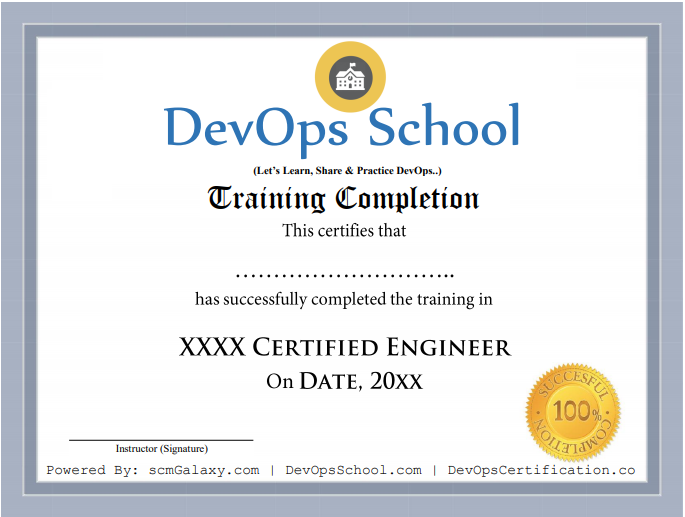
Reviews
By having an excellent journey with 8000+ participants from different countries we have got excellent reviews that helps us stand out of other institutes and being proud. We proudly can say we have helped so many individuals and working professionals to build their career. Here are some of the reviews that we have got from our participants who are happy by being a part of DevOpsSchool.
Videos
Projects
During this training you will get a real-time based project to work on, which will help you to implement your learnings and also it will boost your knowledge and skills. With important tools and platforms you will have real-world experience where we help you to visualize a real development environment, testing environment and production environments.
FAQs
1. Will I get technical support after completion of training?
- Yes, Its free of cost for life time. We will give you can access of our Google drive where you can drop you query and our trainers will respond you back.
2. Why should I learn Datadog course online instead of offline?
- First this is the best option to keep you and your instructor safe in this dangerous pendamic. As well as the environment and benefits what you will get in offline classes same we will provide you in online classes. We will make your experience much better and comfortable than offline classes. That’s why we provide live and instructor-led online classes where you can interact your instructor to clear your doubts.
3. How long will it take to complete the course?
- It will take approx 14 Hrs to fully complete the course.
4. Will I get any placements after the training?
- Well we don’t provide any placements as of now but we can provide you a interview kit to help you out.
5. What are the pre-requisies to learn Datadog?
- There are no prerequisites for DataDog Program. As we are going to start from scratch, you can add yourself in this program to get the complete knowledge about Datadog. Even, if any aspirant is planning to enter the IT world or DevOps this course will help them to get all the job-ready skills.
6. Can a non technical person learn Datadog?
- Yes, but it will be very hard to learn because here the technical words and platforms will be used that he will be not aware of so in my recommendation you shouldn’t try but if still if you want to then yoou should be very concentrated and honest with you as you have to work hard.
7. Do you have online classes or offline classes?
- As of now online classes but he it is a group of people requirement then we can have discussion about offline classes.
8. Will I get the job after completing this course?
- Yes, you will be fully capable to perform any task given to you by your domain senior or manager. As you will be certified engineer who will have all the required skills and knowledge to perform any task.
9. Which kind of certification will DevOpsSchool provide?
- It’s a completion certificate. It will show that you have successfully completed the training and have the right skills and knowledge to perform the task assigned by your company.
10. What is the difference between Datadog and Grafana?
- DataDog is a paid SaaS tool that offers a range of products for monitoring applications and tech infrastructure. Whereas, Grafana is an open-source web visualization tool that is used with a variety of data sources to create dashboards.
11. Who will be my trainer?
- As we have so many trainers its not possible to tell you quickly, as we have to go through their availability. But we can assure you you will get a best trainer as we have a group of best trainers who are very experienced and skillful trainers. They have 15+ iT working experience.
12. Can I get a demo session?
No we don’t provide any demo class but instead of that we can provide you a class recordings so you can decide.
13. Do we have classroom training?
Yes, Classroom training is available in Bangalore, Hyderabad, Chennai and Delhi location. Apart from these cities classroom session can be possible if the number of participants are 6 plus in that specific city.
14. How will I execute the Practicals?
All the Demo/Hands-on are to be executed by our trainers on DevOpsSchool’s AWS cloud. We will provide you the step-wise guide to set up the LAB which will be used for doing the hands-on exercises, assignments, etc. Participants can practice by setting up the instances in AWS FREE tier account or they can use Virtual Machines (VMs) for practicals.
15. What if I miss any class?
In case if you miss the class then there are two ways to get to know what topics has been covered, i.e 1st- We will share the class recordings, notes etc to you and 2nd – you can attend any other session under 3 months of time period.
16. What are the features that Datadog offers?
- Customizable dashboards.
- Alerts based on emerging issues.
- Support for over 250 product integrations.
- Can automatically collect and analyze logs, latency and error rates.
- Permits for access to the API.
- Supports applications written in languages like Java, Python, PHP, .NET, Go, Node and Ruby.
Our Gallery
